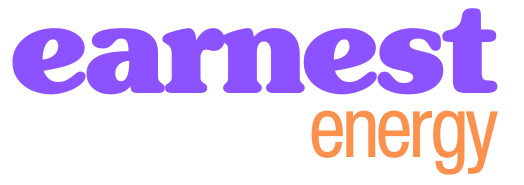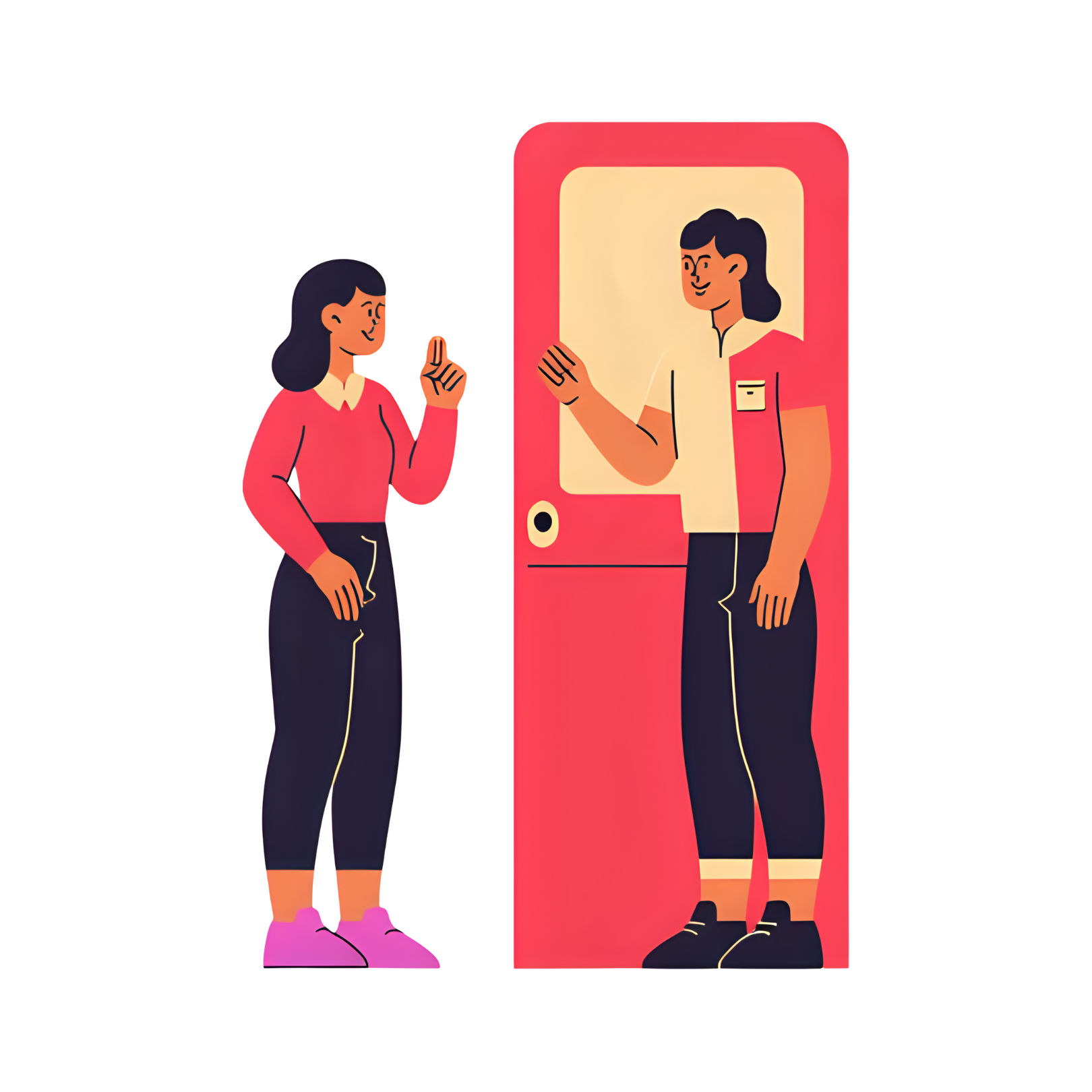Since 2017, it's been illegal to sell electricity contracts at your door in Alberta—but some companies still try. Here's how to protect yourself and why the ban exists.
The Door-to-Door Defense: How Alberta's Sales Ban Protects You (And What to Do When Someone Still Shows Up)
Since January 1, 2017, it's been illegal in Alberta to sell electricity contracts door-to-door. This wasn't just a random regulatory decision—it came after over 1,000 consumer complaints about high-pressure tactics, deliberate misrepresentations, and contracts that people couldn't cancel even when they tried.
But here's what we've learned: some companies are still trying to work around this ban, and many Albertans don't know their rights when someone shows up at their door talking about electricity.
Let's fix that.
Why Alberta Banned Door-to-Door Energy Sales
The government didn't wake up one day and decide to limit how companies could sell electricity. The ban came after years of documented problems that kept getting worse:
The Manipulation Playbook
Door-to-door energy salespeople were trained to use psychological pressure techniques that work particularly well when someone is caught off-guard at home:
Creating false urgency ("rates are going up tomorrow")
Misrepresenting their identity ("we're from your utility company")
Using confusing contracts that hid important terms
Targeting vulnerable populations like seniors or people with language barriers
The Complaint Pattern
The Alberta government received well over 1,000 complaints about energy contracts, with consistent themes:
Deliberate misrepresentations about rates, terms, or savings
Selling unnecessary products that people didn't need or understand
Contracts that couldn't be cancelled even when people tried immediately
High-pressure tactics that made people feel they had to decide on the spot
The Economic Reality
Most door-to-door energy deals were simply bad deals. The high cost of paying salespeople to knock on doors meant companies had to either charge higher rates or use longer contracts to make the economics work.
What's Actually Banned (And What Isn't)
The ban is specific: unsolicited door-to-door sales of household energy products. Here's what that means:
Definitely Prohibited:
Electricity contract sales at your door
Natural gas contract sales at your door
Energy equipment sales (furnaces, water heaters, etc.)
Energy audit sales
Any energy-related sales where you didn't invite the person to your home
Still Allowed:
Telephone sales (though with strict rules about calling times and identification)
Online sales and advertising
Kiosk sales at malls, events, or other public places
Invited visits where you specifically asked a salesperson to come to your home
The Gray Areas:
Some companies try to get around the ban by:
Claiming they're "not selling" but just "providing information"
Saying they're conducting surveys or market research
Representing themselves as being from your utility company or the government
Setting up "neighborhood information sessions" that are really sales presentations
What to Do When Someone Still Shows Up
Despite the ban, you might still get energy salespeople at your door. Here's how to handle it:
Step 1: Don't Feel Obligated to Be Polite
You don't owe door-to-door salespeople your time or attention. It's perfectly acceptable to say "I'm not interested" and close the door.
Step 2: Never Give Personal Information
Legitimate energy companies don't need your account number, social insurance number, or other personal details to "verify your eligibility" for anything. If someone asks for this information at your door, it's a red flag.
Step 3: Use These Scripts
For general energy sales: "I know door-to-door energy sales are illegal in Alberta. I'm not interested, and I'm going to close the door now."
For "information" visits: "If you have information about electricity plans, I can find that online. I don't need door-to-door service."
For people claiming to represent your utility: "My utility company doesn't sell electricity contracts. If you're actually from [EPCOR/FortisAlberta/etc.], I'll call them directly to verify."
Step 4: Document and Report
If someone continues to pressure you or makes claims that seem fraudulent:
Note the company name, person's name, and time of visit
Ask for business cards or official identification
Report the incident to Alberta's consumer protection line at 1-877-427-4088
How to Recognize Legitimate vs. Illegitimate Approaches
Red Flags That Suggest Illegal Sales:
Urgency pressure: "This offer expires today" or "rates are changing tomorrow"
Identity confusion: Claiming to be from your utility company or government
Required immediate decisions: Not allowing you time to read contracts or think about the offer
Requesting account information: Asking for account numbers or personal details at the door
Vague company identification: Can't clearly explain which company they represent
Signs of Legitimate Energy Information:
Clear company identification with proper business licenses
No pressure to decide immediately and encouragement to research options
Transparent about being sales representatives rather than utility employees
Willingness to provide written information that you can review later
Respect for your decision to not engage or to seek information elsewhere
The Psychology Behind Door-to-Door Sales (And Why the Ban Makes Sense)
Door-to-door sales work by exploiting psychological vulnerabilities that smart people fall for all the time:
The Surprise Factor
When someone knocks on your door, you're not prepared to make major financial decisions. You haven't researched options, you don't have comparison information handy, and you're often distracted by other things.
The Social Pressure
It feels rude to slam the door on someone who's "just trying to help" or "doing their job." This politeness gets exploited to keep you engaged longer than you'd choose to be.
The Authority Illusion
Salespeople often present themselves as experts or representatives of official organizations. When someone claims to be from your utility company or says they're helping you comply with new regulations, it creates pressure to listen and comply.
The Scarcity Manipulation
"This offer is only available today" or "I can only sign up five people in your neighborhood" creates artificial urgency that bypasses your normal decision-making process.
What You Should Do Instead of Listening to Door-to-Door Sales
Research on Your Own Timeline
When you're ready to evaluate electricity options, do it when you have time to think clearly and compare alternatives properly.
Use Multiple Information Sources
Don't rely on any single source for information about electricity plans—especially not sources that profit from your decision.
Take Advantage of Alberta's Competitive Market
You have dozens of legitimate electricity options available through normal channels. There's no need to make decisions based on whoever happens to knock on your door.
Get Help When You Want It
If you want personal assistance with electricity decisions, you can:
Use online comparison tools that show multiple options
Contact the Utilities Consumer Advocate for independent information
Call electricity providers directly when you're ready to compare options
Work with legitimate energy brokers or consultants (when you initiate the contact)
The Bigger Picture: Why Consumer Protection Matters
The door-to-door ban isn't just about preventing bad sales tactics—it's about preserving the integrity of Alberta's deregulated electricity market.
When companies can use high-pressure, misleading sales tactics, it:
Reduces trust in the entire electricity market
Rewards companies that manipulate rather than companies that provide value
Makes it harder for consumers to make informed decisions
Undermines the benefits of having choice in electricity providers
By eliminating the worst sales practices, the ban helps ensure that competition happens on legitimate factors like pricing, service quality, and contract terms.
Your Rights and Resources
If You Think You've Been a Victim of Illegal Door-to-Door Sales:
File a complaint with Alberta's consumer protection division
Contact your bank or credit card company if you provided payment information
Review your contract carefully for cancellation rights and cooling-off periods
Document everything including dates, names, and what was promised vs. what was delivered
For General Electricity Questions:
Utilities Consumer Advocate: Independent information and resources
Alberta Utilities Commission: Regulatory information and complaint processes
Earnest Energy: Unbiased plan comparison and matching (that's us!)
The Bottom Line
The door-to-door energy sales ban exists because the Alberta government recognized that high-pressure sales tactics were harming consumers and undermining the electricity market.
You don't have to engage with energy salespeople at your door. You don't have to be polite to people who are breaking the law. And you definitely don't have to make electricity decisions based on whoever happens to show up at your house.
Want to explore your electricity options the right way? Our preference survey helps you understand what's available based on your actual needs and priorities—no sales pressure, no artificial urgency, just clear information when you're ready for it.
[Explore My Options Properly →]
In Alberta, you have the right to choose your electricity provider. You also have the right to make that choice on your own terms, in your own time, with complete information. The door-to-door ban helps protect both of those rights.
Ready to Find Your Perfect Plan?
See how our personalized approach can simplify your electricity decision in just a few minutes.


